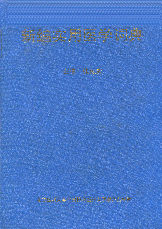
主要责任者: 张俊武;刘莉,张雪莲,戴巍等
责任方式: 主编;副主编
出版者: 北京医科大学中国协和医科大学联合出版社
出版地: 北京
字数: 3187 千字
页码: 1-1361
开本: 16
中图分类号: R-61
装帧: 精
语种:中
定价:130.00
出版时间:1994-12
丛书多卷书否:否
书目简介:本册工具书共收录16622条词条。
被引频次:75
| 词条 | 新编实用医学词典 |
| 类别 | 中文百科知识 |
| 释义 |  主要责任者: 张俊武;刘莉,张雪莲,戴巍等 责任方式: 主编;副主编 出版者: 北京医科大学中国协和医科大学联合出版社 出版地: 北京 字数: 3187 千字 页码: 1-1361 开本: 16 中图分类号: R-61 装帧: 精 语种:中 定价:130.00 出版时间:1994-12 丛书多卷书否:否 书目简介:本册工具书共收录16622条词条。 被引频次:75 |
| 随便看 |
开放百科全书收录579518条英语、德语、日语等多语种百科知识,基本涵盖了大多数领域的百科知识,是一部内容自由、开放的电子版国际百科全书。